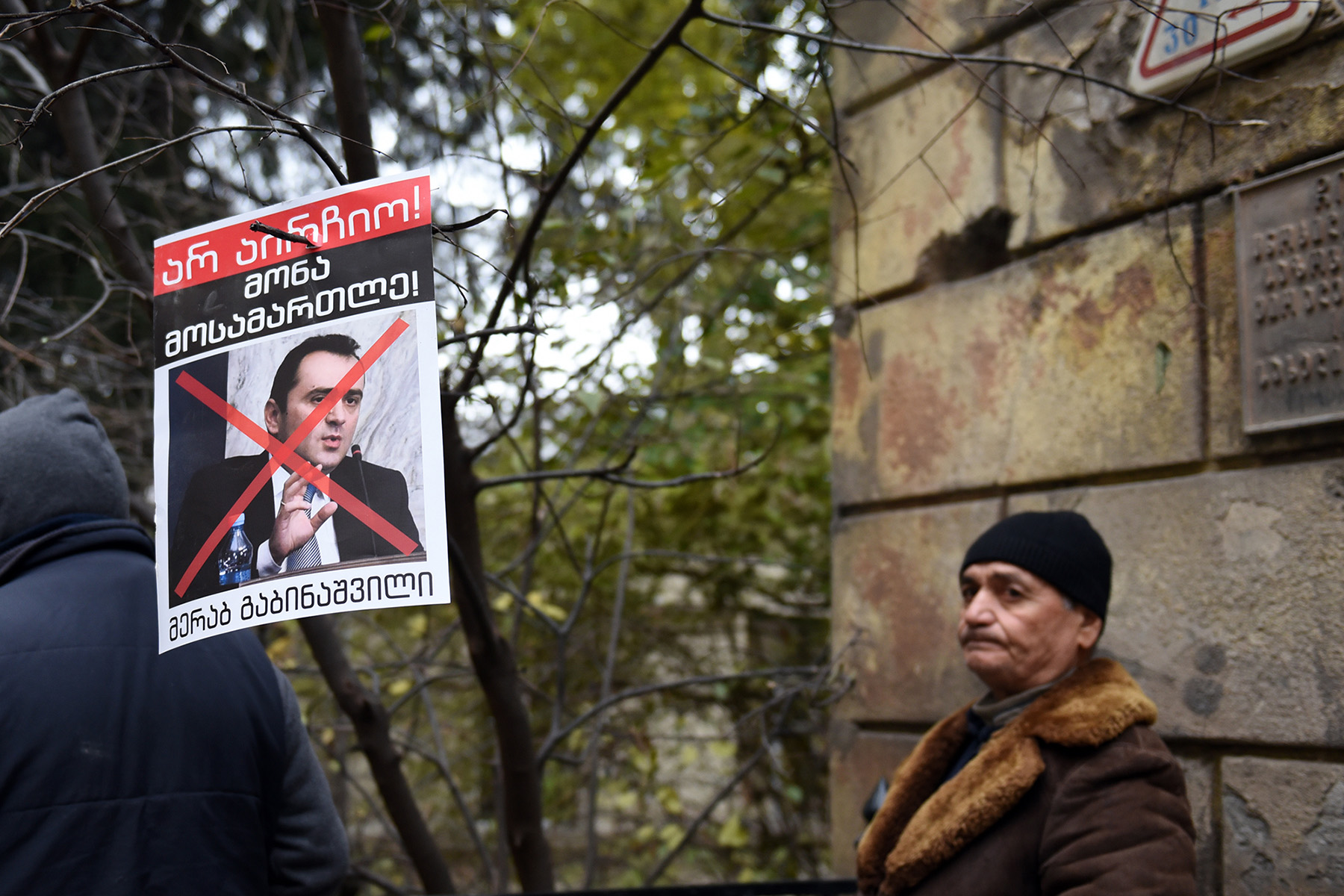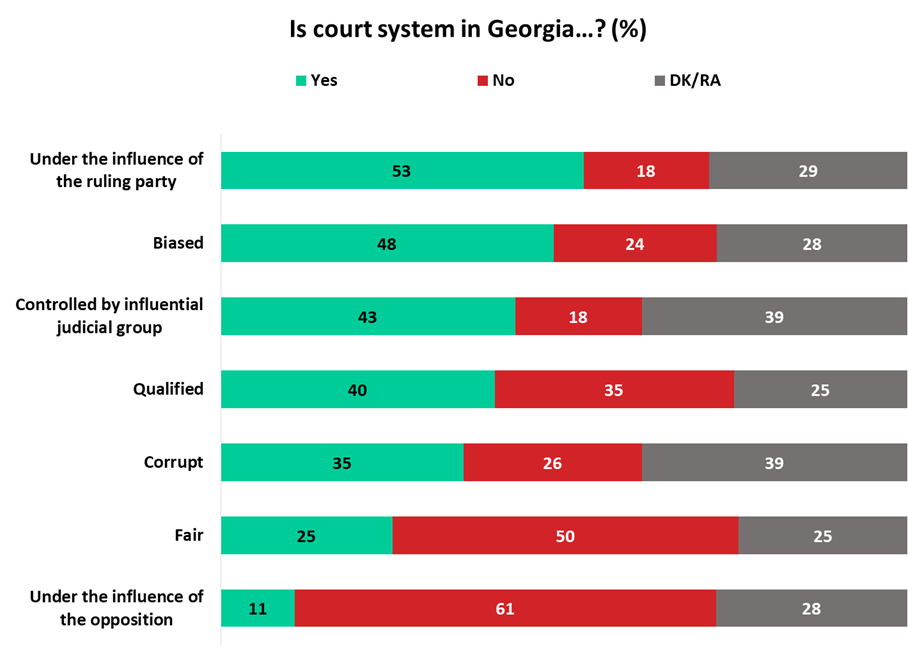
A network of influential judges in Georgia’s judiciary is hitting back after growing calls from local watchdogs, as well as the EU and US, to pause key Supreme Court appointments.
On 28 June, around 130 Georgian unnamed judges penned an open letter to protest what they called a ‘Soviet’ style attack on the country’s judicial independence.
In recent years, opposition groups, as well as key watchdog groups, have criticised what they say are close ties between the ruling Georgian Dream party and what they have referred to as a ‘clan’ inside the judiciary.
The unnamed judges insisted that the judiciary had ‘never been so independent in Georgia as it is now’. They accused ‘certain political groups’, and the media they said had been ‘influenced’ by them as well as non-governmental organisations of waging a campaign to discredit the judiciary.

The statement came days after the High Council of Justice (HCOJ), an independent supervisory body, nominated nine Supreme Court judicial candidates — against the warnings by the OSCE’s Venice Commission.
On 28 April, the Venice Commission recommended ‘staying the appointment procedure’ in the Supreme Court and renewing the composition of the HCOJ.
Reforming the judiciary was a key part of the 19 April agreement between Georgian Dream and opposition parties to bring an end to the political crisis in the country.
On 23 June, The US Embassy to Georgia went as far as highlighting in yellow sections of the agreement, suggesting that Georgian Dream was not meeting its commitments to making ‘inclusive’ judicial reforms.
On APR 19 GD & opposition parties agreed ”ongoing appointments shall be paused” and committed to comprehensive & inclusive judicial reform & new legislation on Supreme Court nominations.https://t.co/qm1UyFaRwG pic.twitter.com/BETz5judMG
— U.S. Embassy Tbilisi (@usingeo) June 23, 2021
On 29 June, US Ambassador Kelly Degnan reiterated that the 19 April agreement ‘explicitly calls for a halt to the process of selection of judges of the Supreme Court’ and that it was now up to parliament to ‘stop this process’.
A similar plea was made by EU Ambassador to Georgia Carl Hartzell several days earlier. Hartzell noted that the implementation of judicial reforms would be viewed ‘from the perspective’ of the EU’s financial assistance to Georgia as well as the EU-Georgia Association Agreement.
‘Cronyism, and clan-based power’
While the US and EU were not explicitly mentioned in the letter from judges, HCOJ member Dimitri Gvritishvili cited unnamed judges on 27 June as saying that they felt that the ‘actions by representatives of Georgia’s strategic partner countries contradicted a relationship with a democratic, lawful, and sovereign country’.
The hard-fought deal brokered by the EU and USA in April was meant to be a roadmap to address the post-parliamentary election impasse in several ways, including judicial reforms in a ‘cross-party’ manner.
This presupposed, according to the deal, inter alia, Georgian authorities ‘refraining from making appointments to the Supreme Court and Georgia’s High Council of Justice (HCOJ), under existing rules’ and halting ‘all ongoing appointments’ until respective legislation were amended.
‘All important processes (especially the appointment of judges) go through the same circles of mistrust, cronyism, and clan-based power’, the Georgian Coalition for an Independent and Transparent Judiciary said on 24 June.
Public trust in Georgia’s courts have been plagued by perceived politically motivated prosecutions and judicial rulings during the rule of both the previous UNM government and under Georgian Dream.
The latest controversial cases include the conviction of opposition supporter Giorgi Rurua for illegal arms possession, as well as ongoing cases against UNM leader Nika Melia and a group of Georgian cartographers.

The lifetime appointments of judges in recent years has led to several waves of criticism and scandal. In February 2019, four MPs, including founding member Eka Beselia, left the Georgian Dream party in protest over the appointments.









